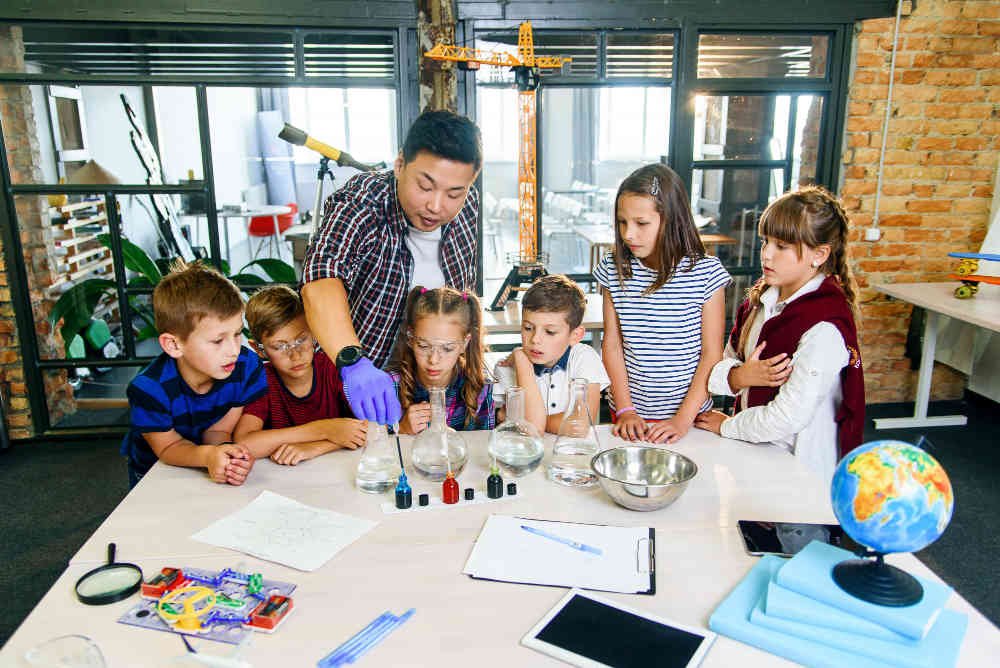In today’s ever-evolving educational landscape, project-based learning (PBL) has emerged as a dynamic and engaging approach to education. Edu21 committed to the PBL model, recognizes that parental involvement is a critical factor in a child’s success. As a parent, your active support and encouragement can significantly enhance your child’s PBL journey. In this blog post, we will delve into the importance of parental involvement and provide practical tips on how you can support your child’s project-based learning experience.
Understanding Project-Based Learning
Before we discuss parental involvement, let’s have a brief overview of project-based learning. PBL is an educational approach that empowers students to learn by actively engaging in real-world projects. Instead of traditional lectures and rote memorization, students are given challenging tasks that don’t have one simple answer. They need to think hard, solve problems, and work together to find solutions.
PBL encourages students to take ownership of their learning, fostering creativity, curiosity, and a deeper understanding of the subject matter. These projects are often interdisciplinary, integrating various subjects into a cohesive learning experience.

The Role of Parents in Project-Based Learning
Parental involvement in PBL can make a world of difference in a child’s educational journey. Here’s why it matters:
- Motivation and Encouragement: Your support can boost your child’s motivation and self-confidence. Knowing that you are interested and engaged in their learning process can be a powerful motivator.
- Resources and Guidance: You can provide valuable resources and guidance when your child encounters challenges during their project. Whether it’s helping with research, suggesting books, or sharing your own expertise, your input can be invaluable.
- Real-World Connections: Parents can help bridge the gap between classroom learning and the real world. You can connect your child’s projects to relevant experiences, industries, or community opportunities.
- Time Management: Teaching your child time management skills is crucial in PBL. Balancing different project tasks and meeting deadlines can be challenging, and your guidance can make a significant difference.
Now, let’s explore practical ways in which you can actively support your child’s PBL journey.

Tips for Parental Involvement in Project-Based Learning
- Stay Informed: Familiarize yourself with your child’s projects, timelines, and expectations. Regularly check in with teachers or school communication platforms to stay updated.
- Ask Questions: Encourage your child to share their project ideas and goals with you. Ask open-ended questions to spark discussions and critical thinking. This dialogue can help refine their project’s direction.
- Provide a Creative Space: Create a conducive environment at home for creativity and learning. Ensure your child has access to the necessary materials, technology, and a quiet space to work.
- Set Realistic Expectations: Understand that PBL can be challenging and messy. Projects may not always go as planned, and that’s okay. Emphasize the importance of learning from failures and setbacks.
- Attend School Events: Participate in school events, workshops, and parent-teacher meetings related to PBL. These opportunities allow you to connect with educators and other parents, gaining insights and support.
- Encourage Independence: While support is essential, encourage your child to take ownership of their projects. Let them make decisions, solve problems, and learn from their experiences.
- Celebrate Achievements: Celebrate your child’s milestones and successes throughout their project. Recognizing their efforts can boost their confidence and motivation.
- Network and Collaborate: Explore opportunities for collaboration with other parents and community members. You can form study groups, share resources, or even mentor each other’s children.
- Reflect and Assess: Help your child reflect on their project experiences. What did they learn? What could have been done differently? Encourage self-assessment and growth.
- Balance and Support: Ensure a healthy balance between school, extracurricular activities, and downtime. Your support should extend to overall well-being, including physical and emotional health.
Parental involvement is crucial for your child’s success in project-based learning. Empowering your child to excel in their educational journey can be achieved by staying engaged, providing guidance, and fostering a supportive environment. Keep in mind that PBL isn’t just about the final product; it’s about the skills, knowledge, and growth your child gains along the way. Your active involvement will enhance the enrichment and reward of that journey.












